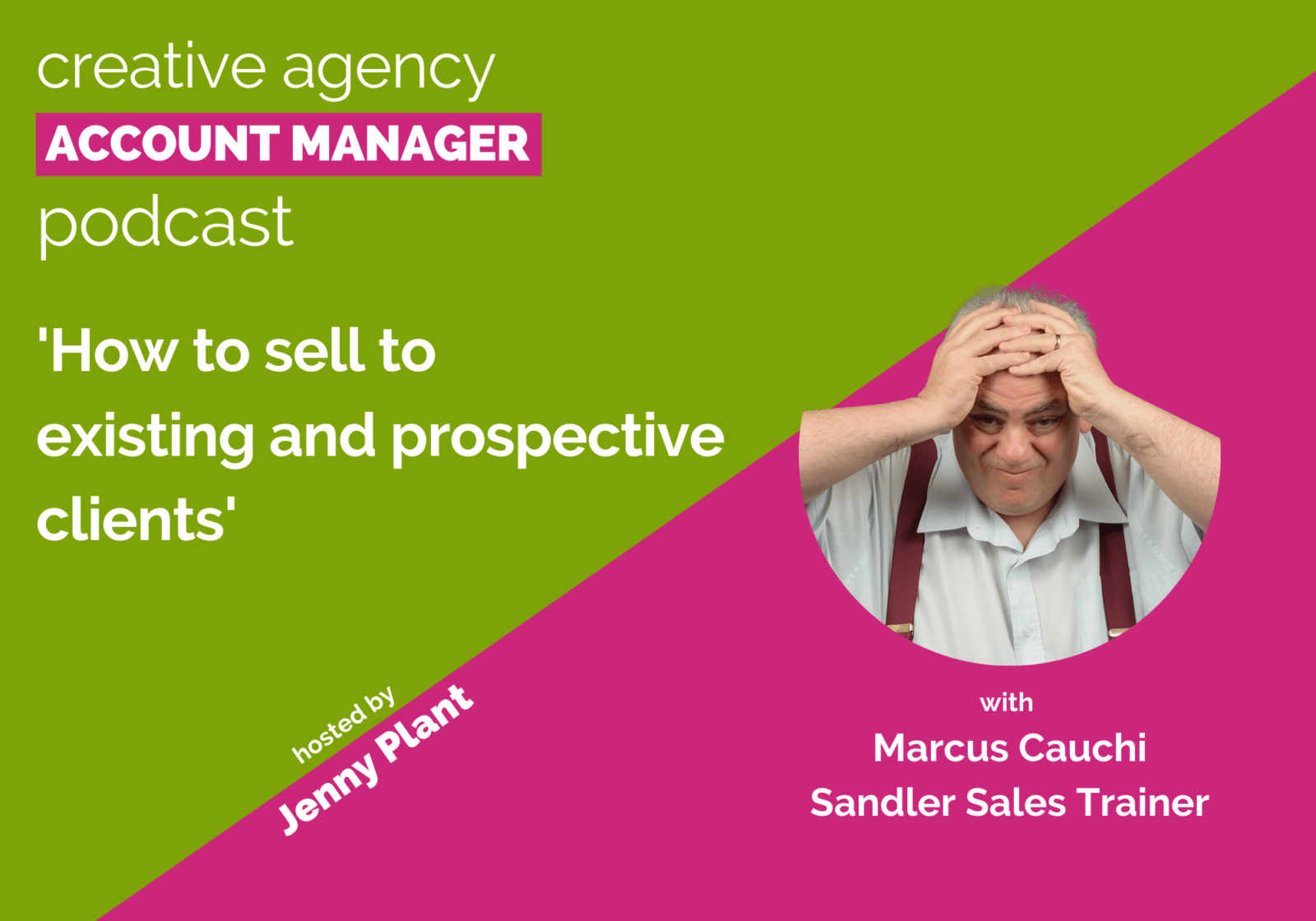
Marcus Cauchi is probably one of the most well known salesman and sales trainers in the UK.
I was fortunate enough to be trained by Marcus in the Sandler selling methodology and meeting him changed the course of my career as I suddenly realised selling skills could have been hugely beneficial when I started out in advertising in the 1990s.
In this episode, Marcus shares with us:
* What agencies need to do to win new business
* The metrics he uses to evaluate a new business team’s effectiveness
* Why asking questions to gather information is a waste of yours and your client’s time
* How agencies can manage the handover from their new business to account management team
* How understanding human psychology can aid us in selling
* The most overlooked area of account expansion agencies miss
* The three myths agencies have bought into about selling….
….and so many more nuggets of selling wisdom, you’ll want to grab and pen and make some notes.
Transcript:
“So what I’ve found is that with minimal knowledge about what the product is, but an understanding of their customer, the kind of problems they have, the kind of better future they’re looking for, I’m able to help people. So my typical client will grow three, four or 500% in a year, if they apply what I teach”.
“You should speak to your customers, speak to your clients, and find out what it is they’re trying to do and speak across their organisation. The problem with so many creative agencies, is they’re fixated on winning the pitch, and then they’re fixated on not being kicked out.”
“But the most important skill of all of those is listening. And listening is a whole body experience. It’s not something you just do with your ears. You do it with your eyes, with your gut. You pay attention to how the person is responding, not just the words.”
“You need to have a cadence of accountability, you need to have regular contact with your customers, or your clients.”
“You have to do the basics well consistently over time and mean it, but very few people do. I remember working with one agency years back, and one of the two founders kept blathering on about being creative. And no one buys creative. They want to sell more shit, okay. If your advertising is boring, but it works, who cares?”
“It’s tough enough, what the hell are you doing fighting amongst yourselves, you should all be aligned working with the customer against their competition.”
“You start with the customer, you need to speak to the customer, you need to listen to the customer. “
“And, you know, focus on your ideal customer. But to do that you have to know who your ideal customer is. And be clear about who your ideal customer is not, so you can say no. Don’t get involved in those bids and tenders.”
“If you’ve got the right customers, you’re serving them really well, you’re focused on service, not servitude, and you see yourself as equal, then you can challenge them, you can bring your best people to bear.”
“Agree at the beginning what you both intend to happen by the end, and make sure at the end, that someone is accountable. One individual is responsible, with a date and a time by which they will deliver a certain piece of work or an action.”
“The question I always like to get an answer to is what is the weakness in their strength? Because if we can exploit that weakness in a competitive strength, then it allows us to start creating campaigns and messaging to exploit it.”
“It’s free form conversation, spontaneous conversation with customers that’s got the really rich, useful data.”
“The reality is that the most powerful content is the stuff that my customers write about me that’s golden. I mean, the flurry of enquiries that come off the back of that, they are worth 10 times, 20 times a cold lead.”
